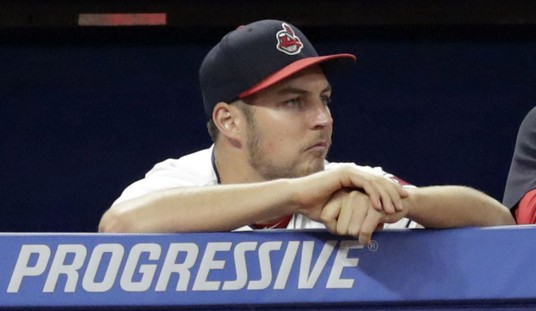1. My New Year’s Resolution Fulfilled!
Dear Liberty Island Leaders Adam Bellow and David S. Bernstein,
Above you’ll see the concluding image from my list of resolutions. I’ve planned this all year — to make my 10th anniversary of joining Facebook also my last day using the service. I began weaning myself from Facebook then, removing the app from my phone and iPad and only using it when on my computer, justifying it as a tool for work.
Turns out that November 27, 2004, was when the addiction began — I was a junior in college at the time. One of the many counterculture thinkers I discovered would influence my understanding of culture, technology, corporations, the Bible, media, my own career direction, and now this decision to abandon the internet’s Coca Cola. (On my counterculture books list from 2012 I included several of his titles; more will appear in the expanded, giant-size counterculture conservative canon of books that have shaped and influenced me.) The primary, strongest arguments for why everyone should leave Facebook come from media theorist Douglas Rushkoff, who bailed in 2013. He identifies the prime problems; my case is an expansion of his.
2. The Douglas Rushkoff Reason: The Newsfeed Cannot Be Trusted.
I read this article on CNN from Rushkoff back in February of 2013 when it came out and couldn’t really argue with his reasons for quitting. I tried to in an email to Doug to justify my continued Facebook usage but all I could say was that it was convenient for my work as an editor. Here are two problems with what Facebook does with your data without your knowledge or permission. First, the reality is that now when you send something out to all your “friends” on Facebook, chances are only a tiny portion of them are likely to see it:
More recently, users — particularly those with larger sets of friends, followers and likes — learned that their updates were no longer reaching all of the people who had signed up to get them. Now, we are supposed to pay to “promote” our posts to our friends and, if we pay even more, to their friends.
Yes, Facebook is entitled to be paid for promoting us and our interests — but this wasn’t the deal going in, particularly not for companies who paid Facebook for extra followers in the first place. Neither should users who “friend” my page automatically become the passive conduits for any of my messages to all their friends just because I paid for it.
And second, the new advertising strategy of using your image and your likes to market to your friends:
That brings me to Facebook’s most recent shift, and the one that pushed me over the edge.
Through a new variation of the Sponsored Stories feature called Related Posts, users who “like” something can be unwittingly associated with pretty much anything an advertiser pays for. Like e-mail spam with a spoofed identity, the Related Post shows up in a newsfeed right under the user’s name and picture. If you like me, you can be shown implicitly recommending me or something I like — something you’ve never heard of — to others without your consent.
The essence of the Facebook experience is pulling up one’s newsfeed and scrolling through it to find something that interests us. Since Rushkoff laid out his case, we now know even more: that Facebook has in the past intentionally manipulated users’ emotions as part of an experiment.
3. The College Reason: 10 Years Is Enough.
I’m finishing up thinking about my college years and 20s. It’s easy to forget how Facebook started out just on college campuses, first aiming at Ivy League universities before spreading to state colleges, and then regions. Soon anybody — including one’s parents — could join. A college email was no longer required.
So in one sense this is an emotional, symbolic act: giving up Facebook means saying goodbye to one of the remaining holdovers of my college identity and those that followed it.
But I think I’ll go a step further: I think Facebook itself fosters an immature, adolescent, college mentality. College is supposedly all about you, all about going and finding yourself. In college we sacrifice years of our lives and tens of thousands to try to better ourselves — we spend years focused on curating pieces of our identity. Facebook just figured out a way to monetize this process of creating an identity from our relationships, opinions, habits, and “likes.”
In staying on Facebook it’s a permanent high school and college reunion, with regular updates and reminders of people whom we might never see in our regular daily lives. We’re perpetually brought backwards in our lives, instead of taking the time to create new media pushing ideas forward.
4. The Narcissism Reason: Time To Stop Feeding the Beast.
I am a narcissist, and Facebook fuels it. And in confessing my own narcissism, it’s too an accusation toward us all. We are all, at our base, animal level, individuals who self-worship. We remain inordinately concerned with ourselves as the default object of worship unless we explicitly choose to worship something else. Hence my turn toward social conservatism and the Bible thumpery of late. A related article I wrote this year, discussing Lisa De Pasquale’s memoir and David P. Goldman’s essay collection in tandem: “30 Bad Ideas Men Should Embrace if They Want to Destroy Themselves.”
Facebook’s business model is to nurture you to think about yourself more. The more you go about defining your identity the better they can sell your identity to businesses who want to market to people like you. The more we tell Facebook about us the more easily it can play on our emotional weaknesses in its advertising.
It’s the “Real Name” aspect of Facebook that makes it so lucrative and also dangerous for encouraging the individual to create a little makebelieve cult that “follows” and “likes”–worships–him. One of my experiments from last year was to create a social media identity apart from myself, one in which I didn’t even overtly identify if I was male or female most of the time. On Instagram I created ThothandMaatMarried, and began experimenting with blending counterculture themes with social conservatism and marriage advocacy. With this kind of social networking my goal was to push myself and my own identity in the background and to just focus on ideas and finding others interested in exploring them. I’m going to explore more accounts like this in the future, that are more akin to a fictional character — or two or three — blended with real-world parts of my personality and activist concerns.
5. Mark Zuckerberg.
I don’t trust Zuckerberg anymore to manage my “one identity.” Do you?
That Facebook has purchased Instagram, one of the social networks I now recommend, does give me pause. The day will come soon when it will be time to flee Instagram too. (I suspect perhaps sooner than later.) A better version of quick video blogging will emerge — one may already have…. But don’t think because I recommend Instagram that I like everything about it. For example: one of the things in Instagram that reminds of Facebook is the way it values community tranquility over individual self expression. If someone objects to a comment or something that you post on Instagram then a commenter can flag you to restrict access, giving you a “cool down” of sorts, regardless of whether you’ve done anything wrong.
What Instagram does well is enable one to shoot, edit, and upload videos from one’s phone quickly and then embed at a website with just the URL. Add-on applications like Hyperlapse and LoMotif enable additional useful effects (as I showed in part 2 of the counterculture films list). This functionality can be replicated in other programs and when I find one superior to Instagram I’ll make that leap too.
6. I’ve Backed Up My Data on My Computer and on Separate DVD.
One of the things that kept me from closing Facebook sooner was that I knew there was data on it that I might want later, both as a record of my life and as research for my books. Facebook does allow you to download a back-up of everything. Here’s how to do it.
In addition to this standard back-up I’ve done some manual back-ups in Word, saving conversations — some that lasted years… — that I’ll plan to look at more deeply someday when I can stomach it. I’ve also backed up my years of photo research (hundreds of excerpts of books that I’m organizing and editing….)
7. I’m Switching to the Next Media: Quick Videos with Instagram + Twitter. And Don’t Get Hung Up with Just One Account. Create Many Fictional Characters and Experiment with Different Voices and Cultural Objectives. And Eventually Leave These Social Networks When Better Ones Emerge.
Newsflash: we are now at the point where ANYBODY is capable of shooting and EDITING video on their phone and then uploading it from anywhere. The future is doing a quantity of short, to-the-point videos that can be shared quickly. Think Instapundit blog posts but shot with iPhones to combine text, sound, and film.
It’s time for the rise of the Army of Davids that Glenn Reynolds prophesied, an alliance of Instapundit culture warriors shooting truth and creativity and a joy for life out into the world 15 seconds at a time.
I’ve been dipping my toes in the quick video waters the past few months. This Thanksgiving it’s time to jump in all the way. Anybody want to join me?
Best wishes and more to come soon,
David
P.S. Coming Next: I’ll be initiating the discussion about the counterculture conservative novels and nonfiction books that will point the direction toward the future… I’ll also be employing this video/tweet style to finishing the second half of the 50 greatest counterculture films list… (Part 1 here, Part 2 here…)









Join the conversation as a VIP Member